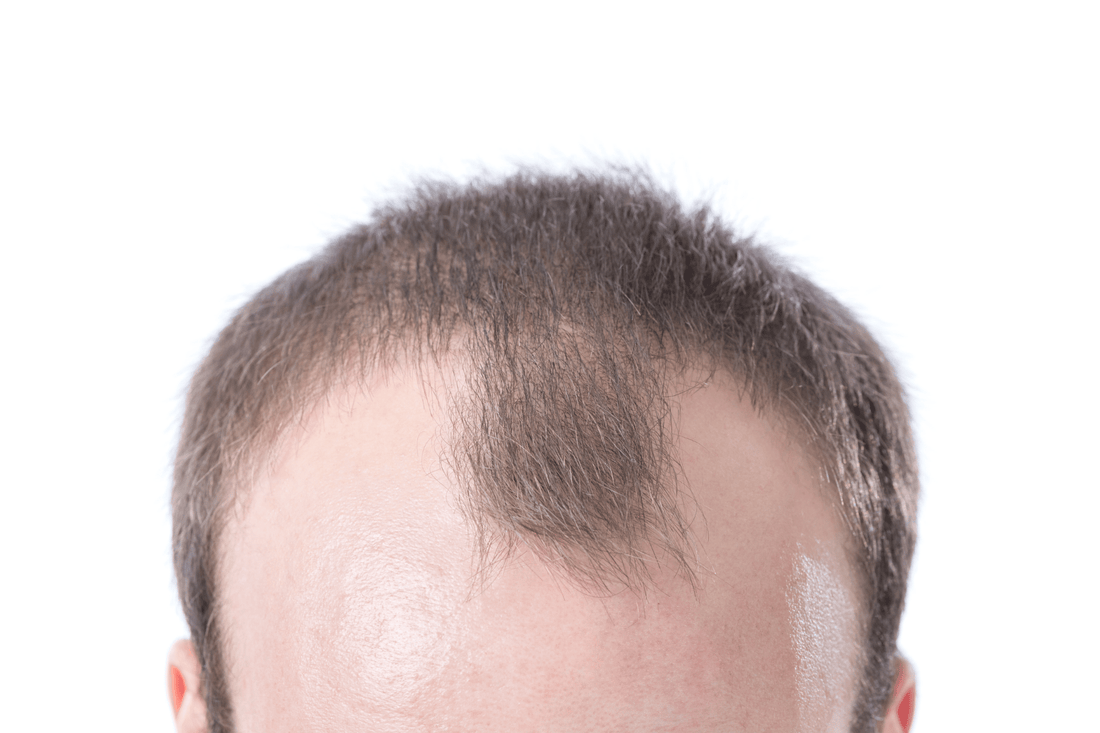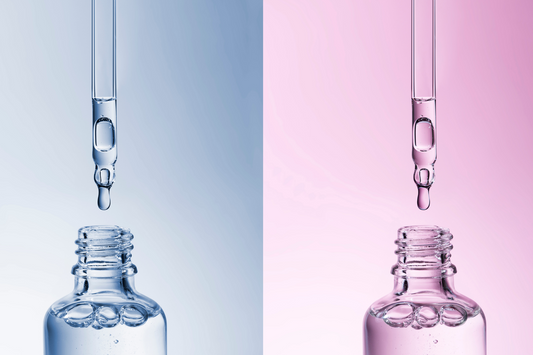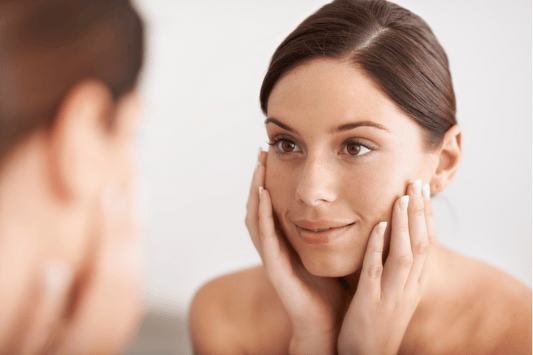Albeit not a pleasant experience, uneven hairlines are quite common. Uneven hairlines can range from very minor (for instance, slightly thicker hair on the left side of your hair) to major (as in hair receding on one side of your hairline and less on the hair). In this article you can learn why uneven hairlines happen and the ways that you may be able to fix them.
How Do Uneven Hairlines Happen?
An uneven hairline occurs when the hair follicles along the edge of your scalp become out of shape, causing your hairline to appear irregular. They can be caused for a variety of reasons such as:
Androgenetic Alopecia or Male Pattern Baldness
Androgenetic Alopecia (aka male pattern baldness), is a genetic condition that causes you to permanently lose hair around the crown of the scalp and hairline. Male pattern baldness is most widely known for the characteristic M-shape of the receding hairline. The permanency of the hair loss stems from hair follicles shrinking, which inhibits hair growth. Many men affected by it tend to start losing their hair asymmetrically, leading to uneven hairlines.
Traction Alopecia
Traction Alopecia is generally regarded as hair loss that occurs when there is tension on your roots. It usually results from repeated hair pulling, such as during hair styling or hair brushing. If you tend to wear extremely tight buns, ponytails, or other pulled-back hairstyles, this can potentially lead to traction alopecia. Hair loss as a result of traction alopecia is likely to grow back, with the right care.
Hair Transplants
An uneven hairline can occur from malpractice in an improperly performed hair transplant. If the transplant was not shaped to your hairline properly in order to frame your face or if the hair transplant does not replicate what your natural hair growth is, it can cause an even hairline.
Stress & Other Hormonal Factors
Stress and other hormonal causes can trigger hair loss and cause an uneven hairline. Stressful and hormone-induced events such as childbirth, work, illness and so forth can all cause an uneven hairline. While hair loss from stress is temporary, you should be mindful of steps to take in order to de-stress so that your hormone levels can balance out.
Are Uneven Hairlines a Reason to Worry?
If you are worried about your uneven hairline resulting in deeper health conditions, worry not. Uneven hairlines (other than stress induced) are not a sign of your health declining. If you have an uneven hairline from traction alopecia or stress, you may be able to prevent it from worsening through proper hair and self-care methods. Genetics and uneven hairlines are a bit more of a tricky situation, but there are alternatives to try such as hair transplants and hair serums.
How to Repair an Uneven Hairline
While genetics and hormones can be harder to maintain, depending on the other causes of an uneven hairline there are ways to effectively start repairing an uneven hairline including:
- Using quality hair products
- Gentle hair care
- Obtaining sufficient nutrition and rest
- Destressing
If your irregular hair growth stems from stress, try to nurture yourself by giving your body extra TLC. Try eating vitamin-rich foods, drinking enough water, resting for at least 8 hours at night, and staying active in order to help balance hormones. If your uneven hairline stems from traction alopecia on the other hand, think about honing in on the type of hair products you use. Avoid hair products with unnecessary harsh chemicals and practice gentle hair care.
The Consensus on Uneven Hairlines
There are many factors that can contribute to the appearance of an uneven hairline. If you are worried that you have or are beginning to develop one, speak to a healthcare professional. By taking preventative measures and maintaining a good hair care routine, you can make every effort to avoid developing an uneven hairline.
If you’re looking to kick hair loss to the curb, Revela can help. ProCelinyl™, the lead ingredient in our Hair Revival Serum, is specifically developed to target the hair follicle directly for reliable results. Fortified with other important nutrients such as Niacin (vitamin B3), Biotin (vitamin B7), Thiamine (vitamin B1), Pantothenic Acid (vitamin B5), and L-Methionine (an amino acid), the serum also provide the nutrition needed for a healthy head of hair.





